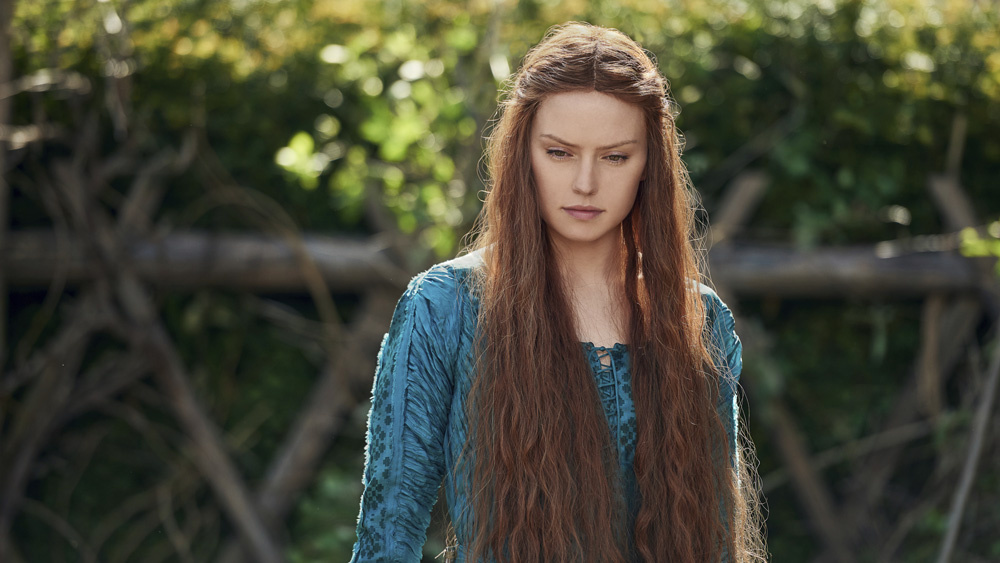So the verdicts have started to pour in on the latest instalment in an innumerable line of Shakespearean cinematic adaptations. Claire McCarthy’s British historical romantic drama Ophelia, the damsel in question being depicted by Daisy Ridley, has been slandered by the Guardian as lacking any emotional investment; Variety deems it no better than a bric-a-brac of sub-par secondary school student intel; and Rotten Tomatoes was only generous enough to gift the flick with a measly 56% rotten scoring on the tomatometer. In essence then, from a critical perspective, the ambitious attempt to flesh out Hamlet’s narrative from the overwrought Ophelia’s perspective has a had about as much of a successful sink or swim chance as the titular character herself. When looking at this outcome alone, it isn’t surprising that the relevance of Shakespeare is called into question, and whether the film and television industry should be wasting valuable time and money in rehashing ancient material – especially if this isn’t even going to be dedicated to material of a high standard.
However, despite the discerning the critical eye, you’ll find that the average approval rating based purely based on the average audience member comes to an impressive 99%. Indeed, if you were to scroll down the page and browse through some of the more optimistic takes on the film, you’ll find that many voice the opinion that this newest take on the classic narrative is ‘colourful and clever,’ allows audiences to explore a character from a radically new perspective, and that Ridley’s performance actually proved inspiring and entertaining. This then is what reminds us of why there are so many remakes and reinterpretations of classic narratives such as Shakespeare and Disney: because audiences love the story. We spend so much time looking at film and television from an academic pedestal and trying to give off the impressions that our noggins are bigger and pinker than they actually are, that we forget how such an industry was founded on the ability to entertain.
Having typed this of course, I can already hear the wave of indignant hisses and screeches attesting to the contrary – that all art is political, to entertain is to teach, everything has a more implicit meaning with Ovid and Chaucer bringing up the rear etc. etc. In that case then, if we are to insist on the educational value of art, then we have to acknowledge how we can still learn to appreciate classic material from different perspectives. After all, our society is ablaze with so many different movements and ideologies coming to the forefront that were not readily accepted or encouraged when the original narratives of Shakespeare and Disney were in their prime, so perhaps we should see it more as an opportunity that we are allowed highlight elements of curiosity in material whose potential was not properly brought to full fruition – the roles of women for instance (obviously).
There’s also the fact then that classic material isn’t just the fodder for Hollywood alone (since we are all in agreement now that Britain and America do not actually mark the middle of the universe ahem). Indeed, the works of Shakespeare provide inspiration for all kinds of different cultures and societies, some adaptions perhaps even providing far more fulfilling and enlightening takes on well-known narratives than Hollywood can ever hope to conceive. One masterpiece that springs to mind in fact is that of the Sanjay Leela Bhansali’s 2013 Bollywood (bear with me here) production Goliyon ki Rasleela Ram-Leela – a stunning and intense revision of Romeo and Juliet. True, the film may take massive liberties in its correlation to the original narrative and the wonderful ingenuity of it may be due to how cultural singularities allow for wonderful sparks of originality, but this film in particular would never have come to realisation if it were not for Shakespeare.
Perhaps then we can agree that it is not so terrible that we keep returning to the same narratives to provide us with inspiration and entertainment, as it is not so much about the name that is being recycled so much as the universality of the narrative. After all, what is there not to relate to in either Shakespeare or Disney: monopolising emotions and explorations of identity, harrowing displays of tragedy and pathos, questions of morality and an embrace of different cultures? The plays of Shakespeare and films of Disney encompass all these factors, so it is perhaps not so much that we keep specifically returning to their works for the sake of a name (though, let’s be honest, money and business will always be a mysterious astrological factor here) but rather that they just so happen to contain so many relatable elements. Ophelia may not be a resounding success then, but neither is it proof that Shakespeare is overrun. If anything, it’s imperfections are rather more proof that McCarthy’s vision has further scope for growth and maturation, and so the fact that a playwright’s ideas from over 400 years ago still have hidden gems to be polished and amplified is rather less tedious than it is exciting.
Tanika Lane
Image credit: variety.com

